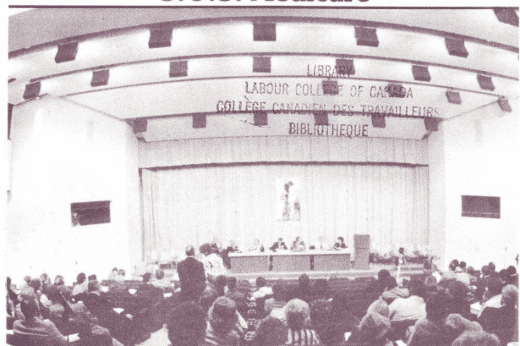No New Year deal for Québec nurses after unprecedented strikes
Negotiations between Québec’s biggest nurse’s union, the Fédération interprofessionelle de la Santé du Québec (FIQ) and the provincial government are deadlocked heading into the new year. The FIQ is the only public sector union that does not have a tentative agreement.
Eighty-five per cent of the FIQ membership are women.
Polls continue to show widespread support for the strikers
Public opinion in Quebec, by and large, is in support of the workers.
The most recent Léger poll to address the unions’ salary demands suggest that support is growing. And if noise made in support of strikes is any indication the public is on the side of the strikers across Québec.
The Common Front versus the CAQ
The 80,000-member FIQ is an ally, but not a member, the 420,000-member Common Front of the four main public sector unions. The unions carried out 3 waves of historic strikes in the last two months during tense talks with the Québec provincial government headed by the right wing Coalition Avenir Québec (CAQ) of Premier François Legault, and his Health Minister Christian Dubé.
During the talks the visibly annoyed Québec Premier told the media that it was very “difficult” to negotiate with the unions, and that unions needed to show more “flexibility.”
A feminist strike: The women versus the men in power
Eighty per cent of all public sector workers are women, and 85 per cent of the nurses and medical technicians of the FIQ are women, as well.
The FIQ says it has significant disagreements with the CAQ government at the bargaining table, including issues related to workload, overtime, and compensation for evening, night and weekend work.
The picket lines of the Common Front, and the FIQ (as well as the teacher’s union known as the Fédération Autonome des Enseignants (FAE), who are not members of the Common Front, but went out on strike at the same time), are unprecedented in recent labour history.
570,000 workers, more than 10 per cent of the working population of Québec downed tools. Never before in the history of Québec, Canada or even North America (since the AT&T strike in 1983) have so many of exercised the right to improve working conditions.
Huge public sector strikes in Québec could inspire others to hit the bricks
Observers say that these strikes may have a contagious effect on unions across Canada and even North America.
McGill Associate Professor of Sociology Barry Eidlin told CTV : “The big lesson for unions is that strikes work, and strikes are back.”
Eidlin says workers have had to contend with 40 years of declining working standards, rising inequality, forced overtime, job insecurity and gig work, and the erosion of pensions and health care.



